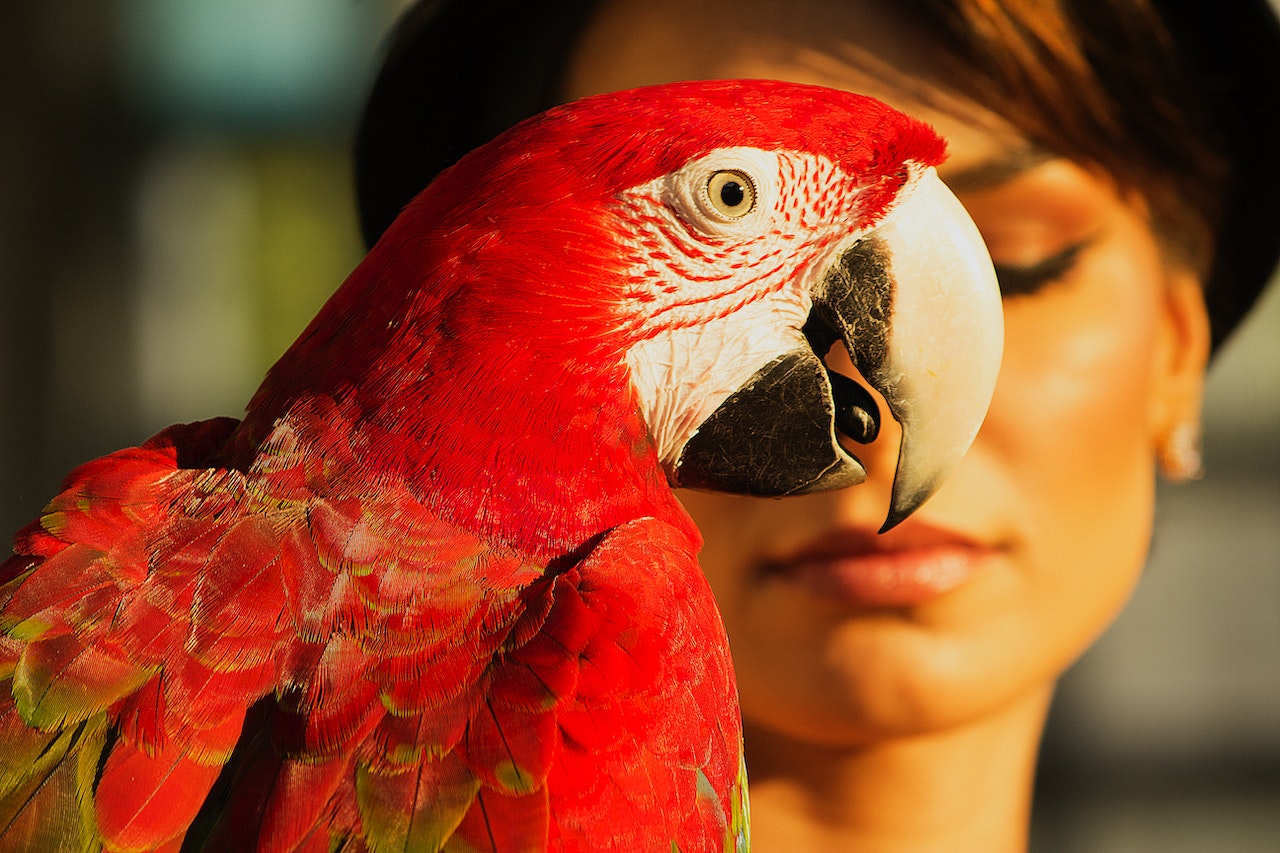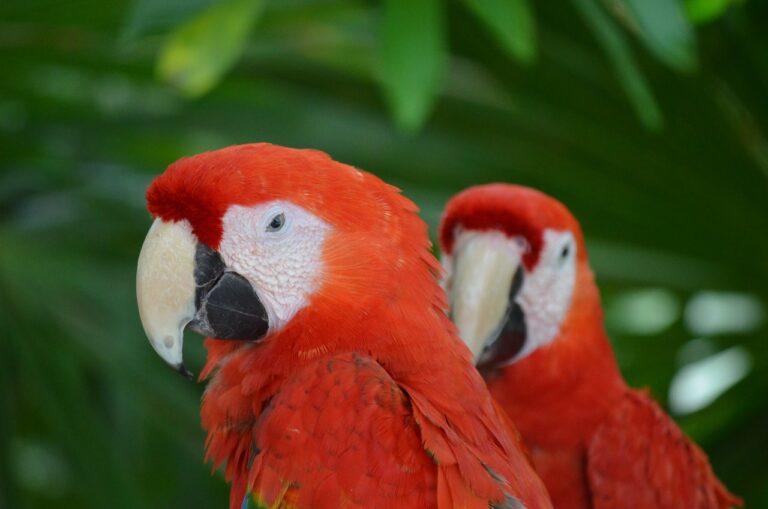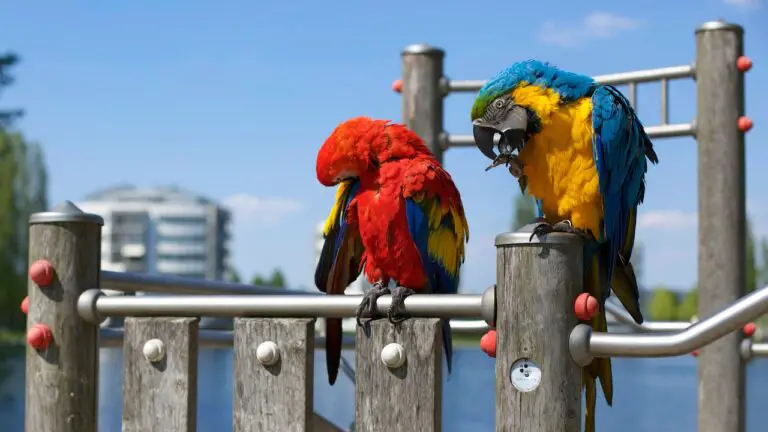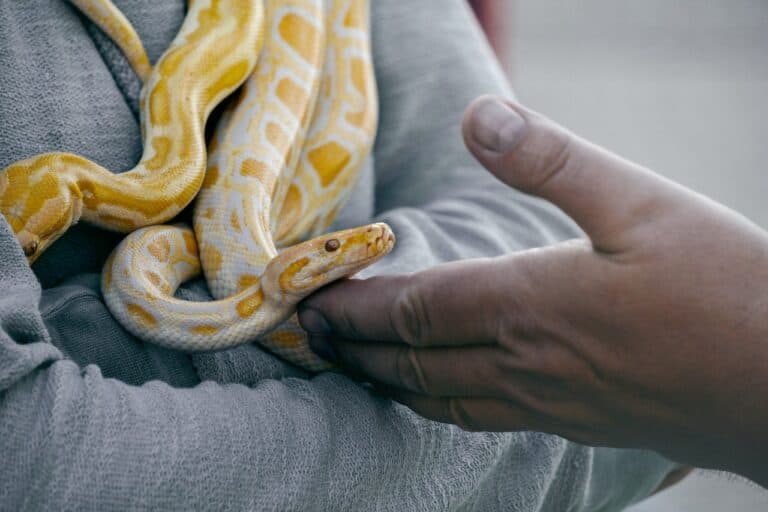Legal Considerations for Exotic Bird Ownership: Ultimate Guide
Owning exotic birds can be an exhilarating experience, but it comes with a set of legal considerations that every bird enthusiast should be aware of.
In this comprehensive guide, we’ll delve into the legal aspects of exotic bird ownership, ensuring you’re well-informed before bringing these beautiful creatures into your life.
Key takeaways:
- Know the Laws: Understand federal, state, and international regulations governing exotic bird ownership, including the Migratory Bird Treaty Act, the Endangered Species Act, and CITES.
- Species Selection: Choose exotic bird species carefully, considering their legal status and your ability to provide proper care.
- Permit Requirements: Acquire the necessary permits at federal, state, and local levels to ensure legal ownership.
- Housing and Care: Follow legal guidelines for bird enclosures, safety standards, and hygiene practices to maintain bird well-being and meet legal standards.
- Health and Disease Control: Adhere to health protocols, quarantine new birds, and consult avian veterinarians to prevent the spread of diseases.
- Import and Export: Comply with import and export regulations, ensuring proper documentation and quarantine procedures for international travel or trade.
- Ethical Ownership: Promote responsible ownership, ethical breeding, and humane rescue and adoption practices.
- Legal Consequences: Be aware of potential legal consequences, including fines, bird seizures, and criminal charges, for violating bird ownership laws.
- Advocacy and Conservation: Support bird advocacy groups, influence legislation, and contribute to conservation efforts to protect exotic bird species.
- Continual Learning: Stay informed about evolving laws and regulations to maintain legal compliance in your exotic bird ownership journey.
Understanding the Legal Landscape
Federal Regulations
Federal laws regarding exotic bird ownership are primarily enforced by the U.S. Fish and Wildlife Service (USFWS).
The Migratory Bird Treaty Act and the Endangered Species Act are two key federal regulations.
The Migratory Bird Treaty Act protects migratory birds, while the Endangered Species Act safeguards endangered and threatened species, including some exotic birds.
Violating these laws can result in severe penalties, including fines and imprisonment. Make sure to consult the USFWS website for updates and specific species listings.
State and Local Laws
State and local laws can significantly vary.
Some states have strict regulations on exotic bird ownership, including permit requirements and species bans. It’s crucial to research your specific state and local laws to ensure compliance.
You can often find this information on your state’s wildlife agency website or by contacting them directly.
International Restrictions
If you plan to travel internationally with your exotic birds or purchase birds from abroad, the Convention on International Trade in Endangered Species of Wild Fauna and Flora (CITES) comes into play.
CITES regulates the international trade of endangered species, and compliance is essential to prevent legal issues. The CITES website provides detailed information on species listings, permits, and international trade regulations.
Enforcement Agencies
Familiarize yourself with the relevant enforcement agencies, both federal and state.
These agencies oversee the implementation and enforcement of bird-related laws.
Establishing open communication with them can provide valuable guidance and ensure compliance with all regulations.
Choosing the Right Bird
CITES Regulations
Understanding CITES is vital when selecting an exotic bird.
As mentioned earlier, CITES classifies species into appendices based on their conservation status. Ensure that the bird you choose is not listed in Appendix I, as these species are highly endangered, and trade is severely restricted.
You can access the CITES Appendices on their official website for the most up-to-date listings.
Endangered Species Act
The Endangered Species Act provides legal protection to species at risk of extinction.
Before acquiring an exotic bird, check if it is listed under this act.
Owning an endangered or threatened species without proper permits can lead to significant legal consequences. Visit the U.S. Fish and Wildlife Service’s website for a current list of endangered and threatened species.
Expert Guidance
Consider seeking advice from avian experts, ornithologists, or experienced bird breeders when choosing an exotic bird.
They can provide insights into the suitability of specific species based on your experience level, available space, and resources.
Additionally, consult resources like the American Federation of Aviculture for species-specific information.
Permit Requirements
Federal Permits
If you plan to own exotic birds covered under federal protection, such as some parrot species, you’ll need federal permits from the USFWS.
These permits are necessary for legal possession, breeding, and interstate transport.
The USFWS website offers detailed guidance on obtaining these permits, including application forms and requirements.
State Permits
Many states require permits for exotic bird ownership.
The types of permits vary, so consult your state’s wildlife agency to understand specific requirements.
State wildlife agency websites often provide permit applications and regulations.
Local Licenses
Cities and municipalities may have their licensing requirements.
These could include zoning regulations and inspections to ensure the birds’ living conditions meet certain standards.
Contact your local government or visit their website to find information on exotic bird ownership regulations.
Permit Renewals
Be aware of permit renewal requirements.
Some permits need to be renewed annually or after specific periods.
Failure to renew permits can result in legal complications, including fines or confiscation of birds. Keep a calendar of renewal dates and adhere to deadlines.
Housing and Enclosure Regulations
Minimum Space Requirements
To ensure the well-being of your exotic birds, housing and enclosure regulations often specify minimum space requirements to prevent overcrowding and stress among the birds.
These requirements may differ depending on the species and size of the birds. Consult avian experts or veterinarians for guidance on creating suitable enclosures.
Safety Standards
Ensuring safety is crucial. Use non-toxic materials in your bird’s environment, provide secure cage construction, and eliminate potential hazards.
Bird owners should regularly inspect cages and perches for wear and tear to prevent accidents.
Environmental Considerations
Consider the natural habitat of your bird species when creating their living environment.
Provide suitable natural lighting, temperature control, and enrichment to mimic their natural habitat as closely as possible.
Research the specific needs of your bird species to create an optimal environment.
Hygiene Protocols
Establish strict hygiene protocols for your bird’s enclosure. Regularly clean cages, perches, and food/water dishes to prevent the buildup of bacteria and parasites. Implement a routine cleaning schedule and use bird-safe cleaning products.
Health and Veterinary Care
Disease Prevention
Preventing the spread of diseases is paramount.
Regular veterinary check-ups, quarantine procedures for new birds, and strict hygiene practices are essential.
Establish a relationship with an avian veterinarian who specializes in exotic birds to ensure the best possible care.
Quarantine Regulations
Quarantining new arrivals is a standard practice. Isolate new birds for a specific period to prevent the introduction of diseases to your existing flock.
Consult with your veterinarian for quarantine protocols tailored to your bird’s species.
Exotic Bird Health Certificates
For international travel or breeding purposes, you may need health certificates to prove that your birds are disease-free.
These certificates are essential for compliance with regulations.
Work closely with your veterinarian to obtain the necessary health certificates when required.
Vaccination Requirements
Stay informed about any vaccination requirements for your exotic birds.
Some species may require specific vaccinations to prevent certain diseases.
Consult with your avian veterinarian to develop a vaccination schedule.
Import and Export Restrictions
International Travel with Exotic Birds
Traveling internationally with your birds involves complying with import and export regulations, including obtaining the necessary permits and health certificates.
Contact the appropriate authorities in your destination country well in advance to understand their specific requirements.
Trade Regulations
The buying and selling of exotic birds are subject to trade regulations to prevent illegal wildlife trafficking and protect endangered species.
Always engage in legal and ethical trade practices. When purchasing birds, request documentation that verifies the bird’s legal status and origin.
Quarantine Protocols
When importing or exporting birds, quarantine protocols may be imposed to ensure that birds are healthy and disease-free.
Adherence is crucial to avoid legal complications. Consult with both domestic and international authorities to understand quarantine procedures.
Record-Keeping
Maintain comprehensive records of all import and export transactions.
This includes permits, health certificates, and invoices.
Proper record-keeping can simplify compliance and provide evidence of legal acquisition and transfer of birds.
Breeders and Sellers
Licensing and Certification
If you intend to breed or sell exotic birds, you may need specific licenses and certifications, depending on your location.
These ensure that you meet legal standards for breeding and selling practices.
Check with your local and state authorities for the necessary permits and certifications for bird breeding or selling.
Ethical Considerations
Responsible breeding and selling practices involve ensuring the well-being of the birds.
Avoid unethical practices, such as bird mills, and prioritize the birds’ health and happiness.
Join avian breeding associations and seek guidance from experienced breeders to adhere to ethical standards.
Buyer Protections
As a buyer, know your rights.
Ensure that sellers provide necessary documentation and adhere to legal requirements.
Be cautious when purchasing birds to avoid potential legal issues. Request written agreements that outline the bird’s health history and legal status.
Breeding Records
If you are a breeder, maintain detailed records of breeding pairs, hatch dates, and genetic information.
Proper record-keeping is not only a legal requirement but also a valuable resource for avian health and conservation efforts.
Rescue and Adoption
Legal Aspects of Bird Rescues
Operating a bird rescue or adopting from one comes with legal considerations.
Be aware of liability and documentation requirements, and ensure your rescue operates within the law.
Consult with animal welfare organizations and legal experts to establish a legally compliant rescue operation.
Adoption Agreements
When adopting an exotic bird, carefully review and understand adoption agreements.
These agreements may outline your legal responsibilities and the bird’s history.
Consult with rescue organizations to ensure clear and legally binding adoption agreements.
Liability Issues
Rescues and adopters must be aware of liability issues, especially when dealing with birds with a history of abuse or health problems. Legal support may be needed to navigate these complexities.
Seek legal counsel to address liability concerns related to rescue operations or adopted birds.
Transport Regulations
When transporting birds for rescue or adoption purposes, ensure compliance with transportation regulations.
Properly secure birds during transport to prevent injury and escape.
Familiarize yourself with international and domestic transport requirements if applicable.
Nuisance Laws and Neighbor Relations
Noise Ordinances
Exotic birds can be noisy, which may lead to conflicts with neighbors.
Understand local noise ordinances and consider noise-reduction measures to maintain good neighbor relations.
Implement soundproofing in your bird’s living area to minimize noise disturbances.
Zoning Regulations
Check your local zoning laws before acquiring an exotic bird, as they can restrict the ownership of certain species or dictate specific conditions for keeping birds.
Work with local authorities to ensure that your bird ownership complies with zoning regulations.
Neighboring Conflicts
Address any conflicts with neighbors diplomatically.
Open communication and compromise can often resolve issues and prevent legal disputes.
Consider engaging in community outreach to educate neighbors about exotic bird ownership and minimize conflicts.
Mediation Services
If conflicts persist, consider mediation services to reach mutually acceptable solutions with neighbors.
Mediators can facilitate discussions and help find compromise solutions that satisfy both parties.
Liability Insurance
Consider liability insurance to protect yourself in case your bird causes harm or property damage to others.
Liability coverage can provide financial protection in the event of legal claims.
Consult with insurance providers specializing in pet and exotic animal liability coverage.
Health Insurance for Birds
Birds, like any pets, may require veterinary care.
Explore health insurance options to offset medical expenses and ensure the well-being of your feathered companions.
Research pet insurance providers that offer coverage for exotic birds.
Property Damage Coverage
Protect your property by ensuring your homeowner’s insurance covers potential damage caused by your birds.
Consult with your insurance provider to understand the extent of coverage and make any necessary adjustments to your policy.
Policy Review
Regularly review your insurance policies to ensure they adequately cover your exotic bird ownership.
Consider policy enhancements or adjustments as your bird collection or circumstances change.
Legal Consequences of Violations
Fines and Penalties
Violating exotic bird ownership laws can lead to fines and penalties.
The severity of the violation determines the extent of the penalties, which can range from fines to imprisonment. It’s crucial to adhere to all relevant laws to avoid legal consequences.
Consult legal experts or wildlife authorities for guidance on potential fines and penalties.
Seizure of Birds
Authorities may seize your birds if you violate laws designed to protect their well-being.
This is done to ensure the birds are cared for appropriately.
Be aware of the circumstances that may lead to the seizure of your birds and take necessary steps to prevent such situations.
Criminal Charges
Serious violations can result in criminal charges, leading to legal proceedings and potential imprisonment.
It’s essential to comply with all laws related to exotic bird ownership to avoid criminal charges.
Seek legal counsel if you face legal actions related to bird ownership.
Advocacy and Lobbying
Joining Bird Advocacy Groups
Support bird advocacy groups and consider joining them to stay informed about legal changes and advocate for responsible bird ownership.
These groups often play a vital role in shaping legislation.
Research national and regional bird advocacy organizations to find ones aligned with your interests and values.
Influencing Legislation
Get involved in your local and national legislative processes to shape laws that benefit both bird enthusiasts and the welfare of exotic birds.
Active participation can lead to positive changes in legislation.
Attend public meetings, contact your elected representatives, and collaborate with advocacy groups to influence bird-related legislation.
Promoting Responsible Ownership
Educate others about responsible exotic bird ownership to help maintain a positive image of bird enthusiasts.
Responsible ownership is crucial for the well-being of birds and the preservation of their species.
Share information through social media, workshops, and community events to promote ethical practices.
Supporting Conservation Efforts
Contribute to the conservation of exotic bird species by supporting organizations dedicated to their protection.
Financial donations can make a significant impact on conservation efforts.
Research reputable conservation organizations focused on avian species and consider regular contributions to their initiatives.
Exotic Bird Conservation
Supporting Conservation Efforts
Contribute to the conservation of exotic bird species by supporting organizations dedicated to their protection.
Financial donations can make a significant impact on conservation efforts.
Research reputable conservation organizations focused on avian species and consider regular contributions to their initiatives.
Breeding Programs
Consider participating in breeding programs aimed at conserving endangered exotic bird species.
These programs play a crucial role in preserving genetic diversity and preventing extinction.
Connect with reputable avian breeding programs and inquire about opportunities to contribute to conservation efforts.
Donating to Conservation Organizations
Financially support organizations working tirelessly to protect exotic birds and their habitats.
Your contributions can help fund research, habitat restoration, and conservation initiatives.
Research conservation organizations, such as BirdLife International and the World Parrot Trust, to identify trustworthy recipients of your donations.
Educational Initiatives
Public Outreach
Engage in public outreach efforts to educate others about the importance of conserving exotic bird species.
Raise awareness about the challenges these birds face and the role of responsible ownership in their preservation.
Organize educational events, workshops, and seminars in your community to reach a wider audience.
School Programs
Collaborate with schools and educational institutions to introduce students to the world of exotic birds.
Educational programs can inspire future generations to care for these magnificent creatures.
Offer educational materials, presentations, and interactive experiences to schools in your area.
Bird Conservation Education
Promote educational initiatives focused on bird conservation.
Provide information on the unique needs and challenges of exotic birds, emphasizing the importance of ethical ownership and conservation efforts.
Develop educational materials and resources tailored to bird enthusiasts, pet owners, and the general public.
Conclusion
Owning exotic birds can be a rewarding experience, but it comes with significant legal responsibilities.
By understanding and complying with federal, state, and local laws, as well as ethical standards, you can ensure the well-being of your birds and protect yourself from legal issues.
Remember that responsible ownership is key to preserving these magnificent creatures for generations to come.
FAQs (Frequently Asked Questions)
Do I need a permit to own any exotic bird?
The need for a permit varies by species and location. Research your local regulations and consult with relevant authorities to determine the specific requirements for the bird you intend to own. Keep abreast of any changes in federal and international regulations to ensure compliance.
What should I do if I suspect my bird is sick?
If you suspect your bird is sick, seek immediate veterinary care. Early diagnosis and treatment are essential for your bird’s health and preventing the spread of diseases to other birds. Establish a relationship with a trusted avian veterinarian who can provide guidance and care.
Can I legally import an exotic bird from another country?
Yes, it is possible to legally import exotic birds from other countries, but it involves complying with international regulations. You’ll need to obtain the necessary permits, health certificates, and follow quarantine protocols to ensure compliance. Stay informed about import and export regulations specific to your country and the country of origin.
What is the penalty for violating exotic bird ownership laws?
The penalties for violating exotic bird ownership laws can vary depending on the severity of the violation and the applicable regulations. Penalties can range from fines to criminal charges, including imprisonment. It’s crucial to adhere to all relevant laws to avoid legal consequences. Consult legal experts or wildlife authorities for guidance on potential fines and penalties.
How can I contribute to exotic bird conservation efforts?
There are several ways to contribute to exotic bird conservation efforts. You can support conservation organizations through financial donations, participate in breeding programs aimed at preserving endangered species, and engage in educational initiatives to raise awareness about bird conservation and responsible ownership. Your involvement can make a significant impact on the protection of these magnificent birds. Stay informed about conservation opportunities and ongoing projects to maximize your contributions.
What are the legal implications of breeding exotic birds?
Breeding exotic birds may require specific permits and compliance with breeding regulations. The legal implications can vary by species and location. Research your local and federal breeding laws, obtain the necessary permits, and adhere to ethical breeding practices. Consult with avian experts or legal authorities to ensure compliance with all relevant regulations.
Peter Stones is the founder of Exotic Pets Place, the leading online resource for exotic pet care information.
With over 10 years of hands-on exotic pet ownership experience, he is deeply passionate about sharing his expertise to help others properly care for their unusual pets.
When he's not writing extensively researched articles or connecting with fellow exotic pet enthusiasts worldwide, you can find Peter at home tending to his own beloved menagerie of exotic animals.





![Aquatic Exotic Pet Care Tips Essential Guide [+ Common Issues], two people caring for fish](https://exoticpetsplace.com/wp-content/uploads/2023/06/Aquatic-Exotic-Pet-Care-Tips-Essential-Guide-Common-Issues-two-people-caring-for-fish-768x512.jpg)

